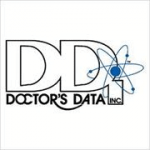
FREE SHIPPING TO U.S. AND PUERTO RICO FOR ALL ORDERS $100 AND OVER!
We are unable to accept returns on any products or test kits. All sales are final.
By visiting our site, you agree to our privacy policy regarding cookies, tracking statistics, etc. Read more
FREE SHIPPING TO U.S. AND PUERTO RICO FOR ALL ORDERS $100 AND OVER!
We are unable to accept returns on any products or test kits. All sales are final.
FREE SHIPPING TO U.S. AND PUERTO RICO FOR ALL ORDERS $100 AND OVER!
We do not currently ship internationally.
Fecal Metals Analysis of elements in feces provides important information about the potential for toxic metal burden. For many toxic metals, fecal (biliary) excretion is the primary natural route of elimination from the body. Fecal Metals elemental analysis also provides a direct indication of dietary exposure to toxic metals. Fecal Metals tests for: Mercury, Antimony, Arsenic, Beryllium, Bismuth, Cadmium, Copper, Lead, Nickel, Platinum, Thallium, Tungsten, Uranium, *Specimen Collection is convenient for the patient and only requires a single-step procedure.
$208.00
Analysis of elements in feces provides important information about the potential for toxic metal burden. For many toxic metals, fecal (biliary) excretion is the primary natural route of elimination from the body. Fecal elemental analysis also provides a direct indication of dietary exposure to toxic metals. Specimen collection is convenient for the patient and only requires a single-step procedure.
Analysis of elements in feces provides a comprehensive evaluation of environmental exposure, potential for accumulation in the body, and possibly endogenous detoxification of potentially toxic metals. For many toxic elements such as mercury, cadmium, lead, antimony and uranium, biliary excretion into the feces is the primary natural route of elimination from the body. The primary process by which the body eliminates the insidious sulfhydryl reactive metals is through the formation of metal-glutathione complexes, of which greater than 90% are excreted into the bile. Evidence for the extent of exposure to mercury from dental amalgams is provided by the fact that fecal mercury levels are highly correlated with the number of amalgams in the mouth. It also clear that fecal mercury levels for people with dental amalgams are remarkably similar from day to day, and approximately ten times higher than in people who do not have mercury amalgams.
Administration of pharmaceutical metal binding agents results in excretion of toxic metals primarily through the kidneys into the urine. In contrast, support of natural detoxification processes enhances the rate of excretion of toxic metals into the feces. Elemental analysis of fecal specimens can provide a valuable tool to monitor the efficacy of natural detoxification of metals in infants or patients who are on very limited and defined diets that do not contain contaminated solid foods. A preliminary study performed at Doctor’s Data indicates that biliary/fecal excretion of mercury and lead may be markedly enhanced following high dose intravenous administration of ascorbic acid. Other orthomolecular or nutraceutical protocols may also enhance the fecal excretion of metals and hence potentially decrease burden on the kidneys. Further research to identify and validate such therapies is warranted.
A primary objective of preventive medicine is avoidance or removal of exposure to toxic substances. The rate of oral absorption of toxic metals varies considerably among elements, and among subspecies of a particular element. Fecal elemental analysis can provide a direct indication of dietary exposure. Orally, the percent absorption of nickel, cadmium and lead is usually quite low, but varies significantly in part due to the relative abundance of antagonistic essential elements in the diet. That is particularly evident for lead and calcium, and cadmium and zinc. Chronic, low-level assimilation of the toxic metals can result in significant accumulation in the body. The results of fecal elemental analysis can help identify and eliminate dietary exposure to toxic metals.
The fecal metals test was not developed to replace the pre and post urinary toxic metals provocation test, but rather provides an alternative for infants, children or adults for whom urine collection is problematic, or for individuals who do not tolerate the available pharmaceutical metal detoxification agents. Elements are measured by ICP-MS and expressed on a dry weight basis to eliminate variability related to water content of the specimen.

This site is protected by reCAPTCHA and the Google Privacy Policy and Terms of Service apply.